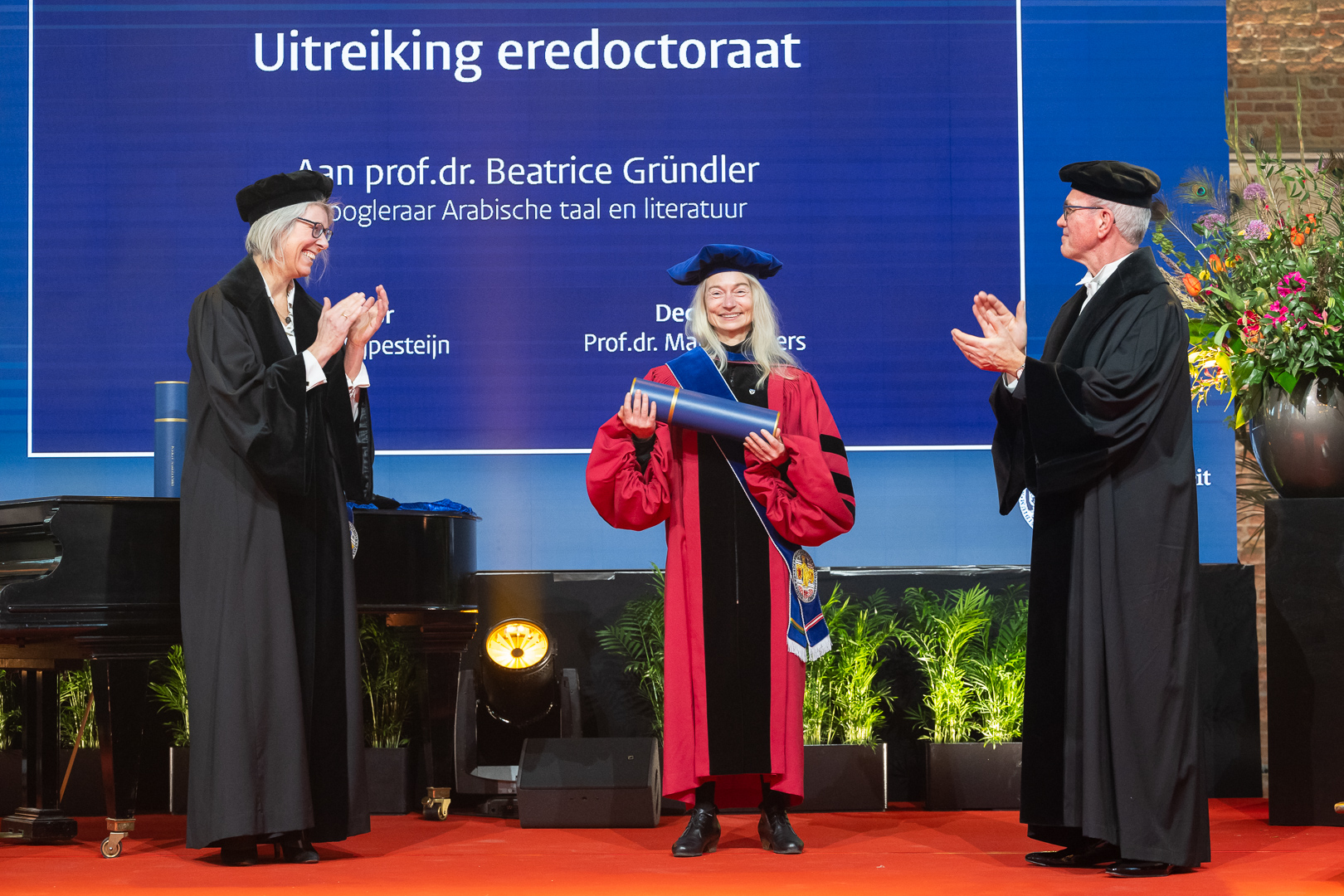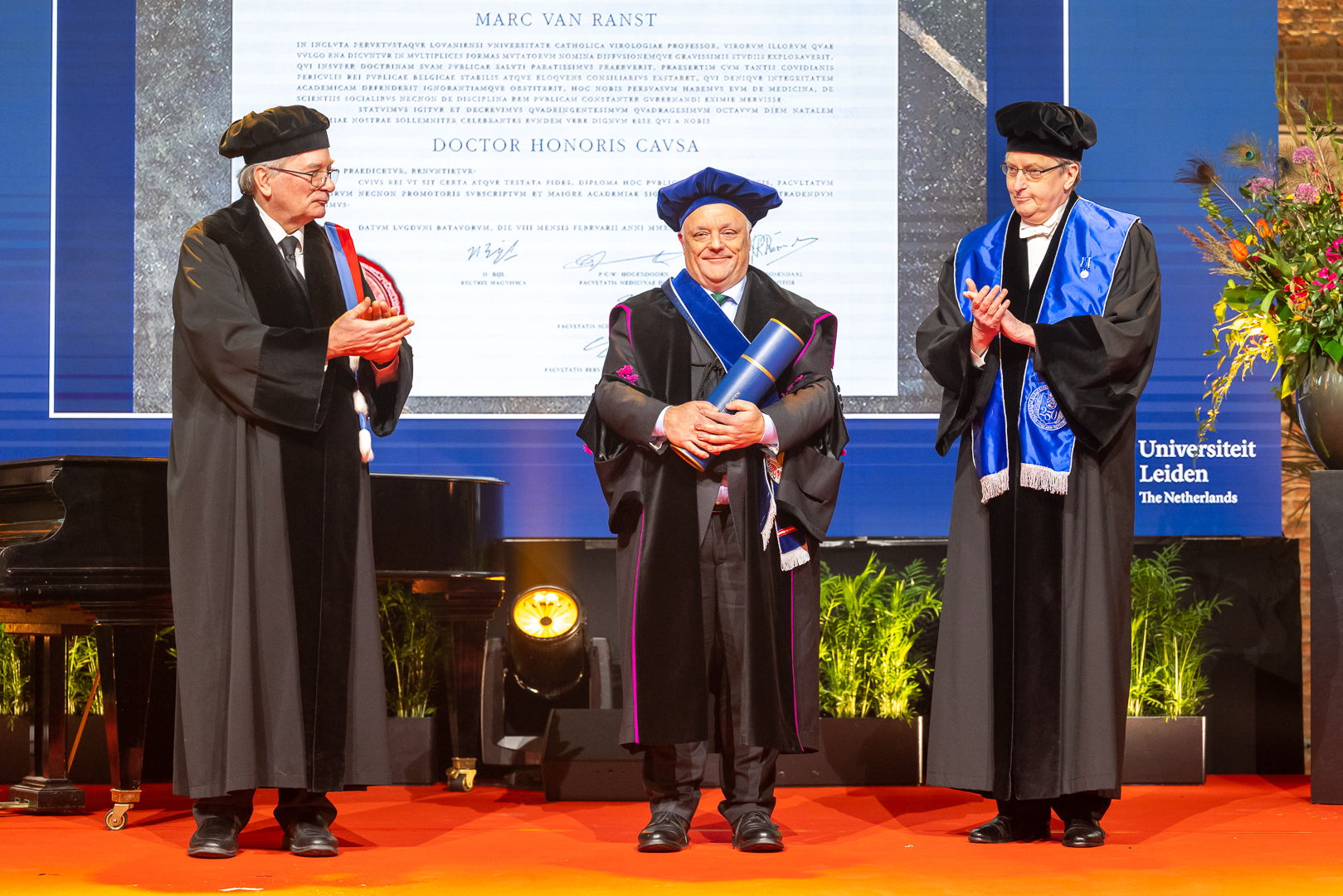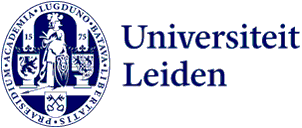
Value of science the focus of 448th Dies Natalis
The importance of science communication and cross-boundary collaboration, and the ‘mantra’ of diminishing social cohesion in society: these all came up at Leiden University’s 448th Dies Natalis. A panel discussion including Leiden’s mayor Lenferink, music and two honorary doctorates completed the special day.
The celebration began with the traditional procession of students and professors. From a full Pieterskerk Rector Magnificus Hester Bijl said how saddened she was by the devastating earthquake in Turkey and Syria. ‘The hunt for survivors continues under extremely difficult conditions. My thoughts go out to the students and staff with friends or family there.’ She was briefly interrupted by a protest by climate activists, whom she invited to discuss the matter at a later moment.


Cohesive and inclusive society
One of today’s biggest issues according to the Dutch Research Agenda (NWA) is how to create a cohesive and inclusive society. Professor of Migration History Marlou Schrover reflected on this in her speech ‘Diversity policies are meant to strengthen social cohesion, but in practice do not work as intended. That is a problem because the idea that policies fail undermines trust in government and democracy.’
There is considerable debate nowadays about the decline in social cohesion, but this is neither defined nor measurable. ‘The idea that increased ethnic diversity weakens cohesion has been refuted but is repeated nonetheless,’ said Schrover. ‘The mantra of ever-diminishing social cohesion, combined with nostalgia for a society that never was, has consequences: it creates a perception of failure. Perhaps we should yearn for a time when improvements took priority over preaching and talking.’

Public engagement
How do we ensure that science is of value to society? Science communication is crucial, said Ionica Smeets in her speech. The way scientists convey their knowledge to the outside world could be improved.
Transmitting information and giving the best possible explanation is not the ideal way to improve relations between science and society, she said. ‘Facts are not always convincing, as we were all able to observe during the pandemic,’ said Smeets. She therefore called for more public engagement, which involves rather than informs the public. She accepted that not all scientists will feel like taking on public engagements. ‘We don’t all have to do everything, but we do have to make sure that someone does those things that are important.’
After the two speeches it was time for a panel discussion led by university historian Pieter Slaman. Jan Willem Beaujean, Director-General of the Agricultural Transition Project, Amito Haarhuis, Director of Rijksmuseum Boerhaave, and Mayor of Leiden Henri Lenferink discussed today’s theme: the value of science and public engagement. The speakers acknowledge that scientific knowledge is and should remain extremely important in their organisations and society.
Russian cellist Maya Fridma, who is also a PhD candidate at the Academy of Creative and Performing Arts, provided a musical interlude.
Honorary doctorates
Beatrice Gründler and Marc Van Ranst were both awarded an honorary doctorate. Gründler, Professor of Arabic Language and Literature at the Freie Universität Berlin, was honoured for her work in the field of Classical Arabic. She praised Leiden University’s renowned manuscript collection and its contribution to the study of the language. In her acceptance speech she spoke about the Arabic book Kalila and Dimna, a book that changed as it travelled across different cultures, including the Dutch one. ‘Maybe it can help us to embrace a new meaning of the Europe of today, which is more diverse in languages and religions than ever before.
-

Beatrice Gründler receives her honorary doctorate -

And an honorary doctorate for Belgian virologist Marc Van Ranst
Van Ranst, a professor at KU Leuven, was awarded his honorary doctorate for his important contributions to epidemiology and virology, his advice to the Belgian government on the Covid pandemic and his communication with the public. During the Covid pandemic, he was one of the main advisers to the Belgian government. He faced serious threats and even had to go into hiding for a while with his family. In his acceptance speech, he called on people to take a stand against threats to scientists. ‘We should never think this is normal.’ KU Leuven will celebrate its 600th anniversary in 2025, less than a week after Leiden University celebrates its 450th one. Van Ranst suggested celebrating these two birthdays together.
Pianist and third-year psychology student, Hannelore van Es, provided a second musical interlude.

‘Cross-boundary collaboration’
Today in 2023, the world is looking to science to solve its climate, migration and health challenges. To do so and to give full expression to the different values of science, collaboration is essential, said Rector Magnificus in her Dies speech. ‘Collaboration across disciplinary, departmental and organisational boundaries.’
To foster this, Leiden University will focus on creating shared workspaces, expanding the joint infrastructure and developing interdisciplinary ‘growth hubs’. These are ‘sanctuaries that give staff time and space to work together over a longer period and across boundaries, preferably also with external partners.’
Bijl emphasised that space will always be needed for fundamental independent research. ‘Science is not possible without strong disciplines and independent research. It’s about striking the right balance. We will therefore continue to draw attention to the need for sufficient external funding for research that is not linked to themes or missions.’
After the speech, tradition dictated that it was time for Het Wilhelmus, the national anthem, and this marked the end of the University’s 448th birthday.
Photos: Marc de Haan and Monique Shaw
